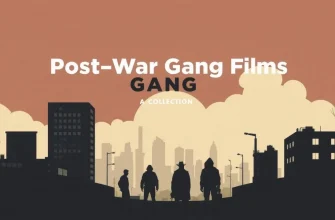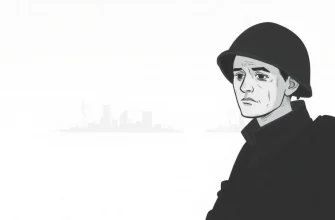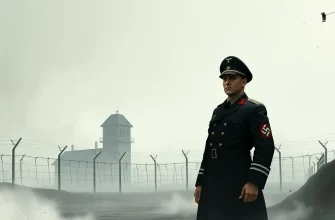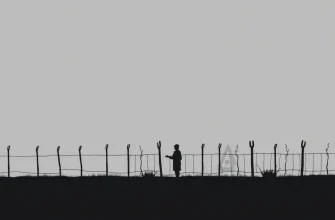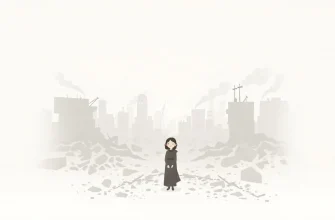The Holocaust remains one of the darkest chapters in human history, a time of unimaginable suffering and loss. These films not only serve as a poignant reminder of the atrocities committed but also highlight the resilience and spirit of those who endured. Here are ten of the most impactful films that delve into this somber period, offering insights into the human condition, bravery, and the fight for survival.

Sophie's Choice (1982)
Description: Meryl Streep delivers an Oscar-winning performance as Sophie, a Polish immigrant haunted by her past decisions during the Holocaust. The film delves into the moral complexities and the lasting trauma of survivors.
Fact: Streep learned Polish for her role, and her performance is often cited as one of the greatest in film history.
 Watch Now
Watch Now 
Schindler's List (1993)
Description: Steven Spielberg's masterpiece tells the true story of Oskar Schindler, a German businessman who saved over 1,000 Jewish refugees during the Holocaust by employing them in his factories. The film's black-and-white cinematography and the iconic scene of the girl in the red coat are unforgettable.
Fact: The film was shot in Krakow, Poland, where many of the actual events took place. Spielberg refused to accept a salary for directing, stating that it would be "blood money."
 Watch Now
Watch Now 
Life Is Beautiful (1997)
Description: This Italian film by Roberto Benigni uses humor and imagination to tell the story of a father who uses his wit to shield his son from the horrors of a concentration camp. It's a testament to the power of love and imagination in the face of adversity.
Fact: Benigni won the Academy Award for Best Actor, becoming the second person to direct himself to an Oscar win. The film was also nominated for Best Picture.
 Watch Now
Watch Now 
The Grey Zone (2001)
Description: This film focuses on the Sonderkommando, prisoners forced to assist in the extermination process at Auschwitz, and their planned revolt. It's a stark portrayal of the moral dilemmas faced by those in the "grey zone" of complicity and resistance.
Fact: The screenplay was adapted from a play by Tim Blake Nelson, who also directed and starred in the film.
 Watch Now
Watch Now 
The Pianist (2002)
Description: Roman Polanski's deeply personal film follows Władysław Szpilman, a Polish-Jewish pianist who survives the Holocaust by hiding in the ruins of Warsaw. The film captures the harrowing experience of living in constant fear and the power of music as a form of solace.
Fact: Polanski, himself a Holocaust survivor, dedicated the film to his parents who died in the Holocaust. Adrien Brody learned to play Chopin's pieces for his role, losing significant weight to portray the emaciated Szpilman.
 Watch Now
Watch Now 
The Boy in the Striped Pyjamas (2008)
Description: This film explores the Holocaust through the eyes of an innocent child, Bruno, whose father is a commandant at Auschwitz. The friendship between Bruno and Shmuel, a Jewish boy on the other side of the fence, is both touching and tragic.
Fact: The film was adapted from John Boyne's novel of the same name. Despite some historical inaccuracies, it has been praised for its emotional impact.
 Watch Now
Watch Now 
The Diary of Anne Frank (1959)
Description: This adaptation of Anne Frank's diary captures the life of a Jewish family hiding from the Nazis in Amsterdam. It's a poignant look at hope, fear, and the innocence of youth amidst horror.
Fact: The film won three Academy Awards, including Best Supporting Actress for Shelley Winters.
 Watch Now
Watch Now 
Defiance (2008)
Description: This film recounts the true story of the Bielski partisans, a group of Jewish brothers who saved hundreds of Jews by establishing a resistance group in the forests of Belarus. It's a story of defiance, survival, and the will to fight back.
Fact: Daniel Craig and Liev Schreiber underwent extensive training to portray the guerrilla fighters accurately. The film was shot in Lithuania, close to where the actual events took place.
 Watch Now
Watch Now 
Son of Saul (2015)
Description: This Hungarian film follows Saul Ausländer, a member of the Sonderkommando at Auschwitz, as he tries to give a proper burial to a boy he believes to be his son. The film's intense focus on Saul's perspective creates a visceral experience of the Holocaust.
Fact: It won the Grand Prix at the Cannes Film Festival and was Hungary's entry for the Best Foreign Language Film at the Oscars, where it won.
 Watch Now
Watch Now 
The Counterfeiters (2007)
Description: Based on true events, this German film tells the story of a group of prisoners forced to produce counterfeit money for the Nazis. It explores themes of survival, morality, and the gray areas of wartime ethics.
Fact: The film won the Academy Award for Best Foreign Language Film, highlighting the lesser-known aspects of the Holocaust.
 Watch Now
Watch Now 

